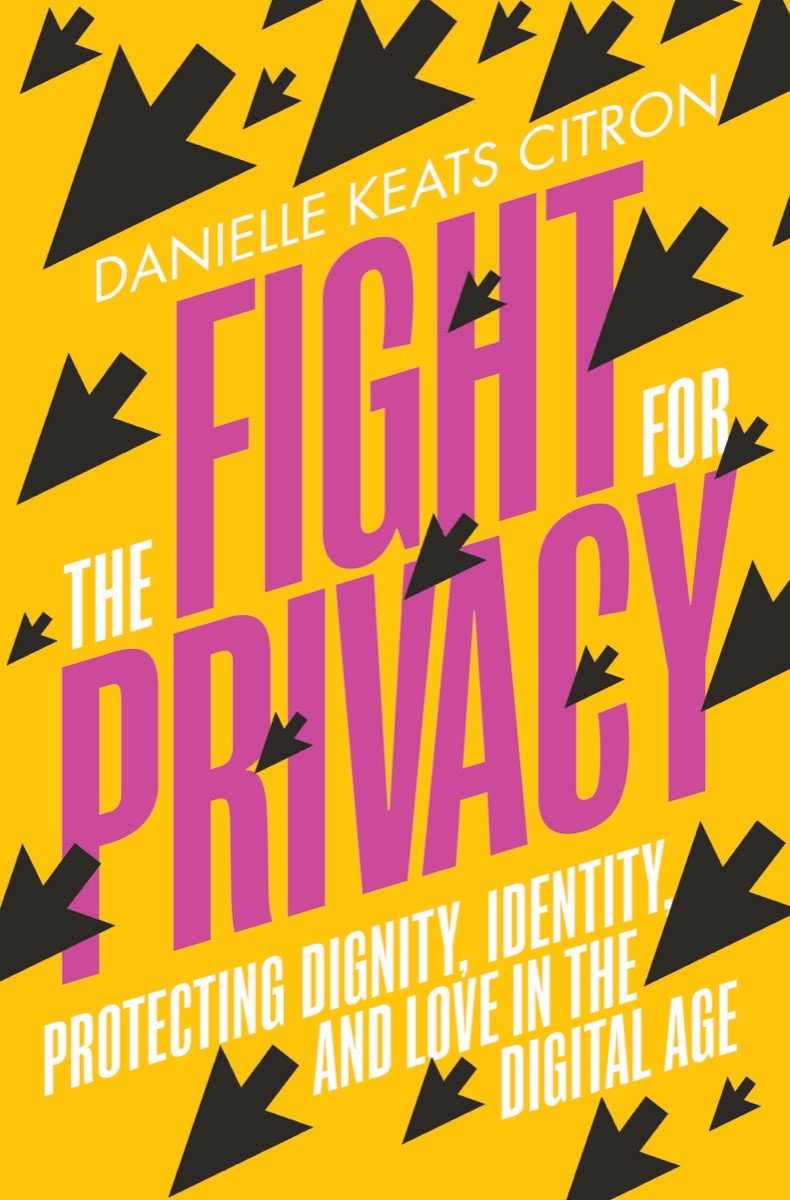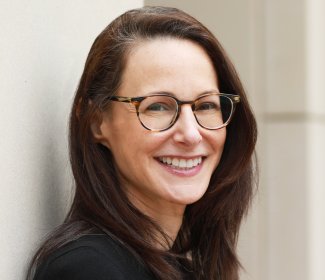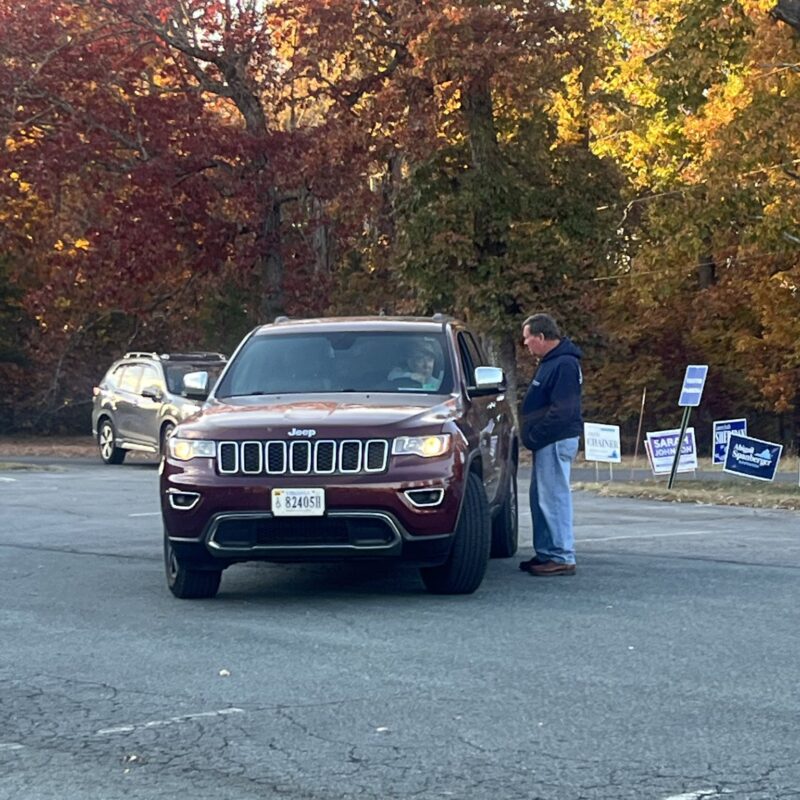On the evening of October 11, Danielle Keats Citron took the stage in the Swanson Case room at the downtown library to speak about her latest book, The Fight for Privacy: Protecting Dignity, Identity, and Love in the Digital Age. The event, organized by Cville Dems, put Citron in conversation with her friend and peer William Hitchcock, a UVA history professor and co-host of the “Democracy in Danger” podcast.
Citron, the Jefferson Scholars Foundation Schenck Distinguished Professor in Law and Caddell and Chapman Professor of Law at UVA, won a MacArthur “genius grant” in 2019. For years, her work has focused on the intersection of law and technology—an area she believes is in dire need of reform.
“Law does a bad job,” said Citron. “Law is inadequate to the task” of protecting our private lives.
At the outset of the talk, Hitchcock—one of the first to read the book in manuscript form—warned the crowd that Citron would both dazzle and frighten with her tales of privacy violations.
In writing The Fight for Privacy, she interviewed 60 women around the world who had intimate details of their lives spread online without their consent. In one instance, a woman she calls Joan stayed in a hotel on a work trip, and upon returning home got an email from someone who had sent her a PornHub link to a video of her undressing and using the bathroom in the hotel. Accompanying the link was a threat that the sender would distribute the footage to her family, friends, and co-workers if Joan didn’t respond with sexually explicit videos of herself.

When Joan didn’t reply, the sender made good on the threat. This attack, with what Citron identifies as “nonconsensual pornography,” upended Joan’s life and career because her real name was embedded in each posted video, and scrubbing it off the internet was impossible.
“Victims have told me it’s an incurable disease,” said Citron. “You can’t sue the platforms, they’re immune from responsibility, there are over 9,500 sites … their entire business model is nonconsensual intimate imagery.”
These sites are protected by what’s simply known as Section 230—a part of the Communications Decency Act—which shields online platforms from being treated as a publisher of user-uploaded content. And scenarios like Joan’s are similar to the trend of “revenge porn,” where jilted ex-partners share intimate imagery of someone without their consent.
“We figure ourselves out through our bodies,” said Citron. “We need to enjoy human dignity, social esteem, to be seen as fully integrated selves. But when we’re just a photo of a vagina online, we become a fragment. We’re not subjects or objects.”
Citron believes intimate privacy is central to human and civil rights. She’s written about the topic since 2008, studying the laws surrounding it. And she’s determined that existing laws don’t do enough to protect individual privacy in the 21st century. HIPAA, she uses as an example, can’t protect user searches on WebMD, or seal the data captured by a period-tracking app. Instead, privacy is viewed in the United States as a “consumer protection matter”: If companies are transparent about what they gather, they’re not liable for misleading users. Why they collect that data isn’t a question they’re compelled to answer.
“The notion is it’s part of the market data flow. It’s efficient, it’s profitable,” said Citron. “There isn’t anything standing in the way of the data broker business. We have to change that.”






